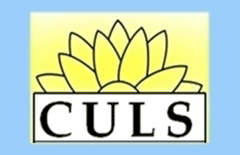Abstract
Locating, synthesizing, and evaluating information is the heartbeat of information literacy. Using a high-powered discovery layer can assist in the mission of information literacy. However, in order for this partnership to come to fruition, traditional teaching practices must be re-examined to accommodate new technologies. This paper will define discovery, explore instructional practices, and investigate emerging teaching practices concerning the integration of information literacy instruction with discovery layers. The author of this article will use WorldCat local as the primary discovery layer for this study. As defined by the Online Computer Library Center (OCLC), WorldCat Local is a “webscale discovery solution that delivers single-search-box access to more than 1.071 billion items from your library and the world's library collections.” William Allen White Library at Emporia State University adopted WorldCat Local as its discovery solution after reviewing several discovery layers services. WorldCat Local was selected due to it continually evolving nature when dealing with the electronic resources and physical collection.
Creative Commons License

This work is licensed under a Creative Commons Attribution-Noncommercial-No Derivative Works 4.0 License.
Recommended Citation
Givens, Earl
(2013)
"Discovery: The Information Literate WorldCat,"
Kansas Library Association College and University Libraries Section Proceedings:
Vol. 3:
No.
1.
https://doi.org/10.4148/culs.v1i0.1829
References
Fagan, J. C. (July 01, 2011). Discovery tools and information literacy. Journal of Web Librarianship, 5, 3, 171-178.
http://dx.doi.org/10.1080/19322909.2011.598332
Gibson, I., Goddard, L., & Gordon, S. (March 06, 2009). One box to search them all: Implementing federated search at an academic library. Library Hi Tech, 27, 1, 118-133
http://dx.doi.org/10.1108/07378830910942973
Grotti, M. G., & Sobel, K. (January 01, 2012). Worldcat local and information literacy instruction: An exploration of emerging teaching practice. Public Services Quarterly, 8, 1, 12-25.
http://dx.doi.org/10.1080/15228959.2011.563140
Gove, P. B., & Merriam-Webster, Inc. (2002). Webster's third new international dictionary of the English language, unabridged. Springfield, Mass: Merriam-Webster.
Helfer, D. (January 01, 2005). Leading Libraries - Doris Helfer shares the experiences -- The good, the bad, and the ugly -- Of her library (CSU, Northridge) as it implemented meta-, or federated, searching. Searcher: the Magazine for Database Professionals, 13,2, 40.
Hoeppner, A. (April 01, 2012). The Ins and Outs of Evaluating Web-Scale Discovery Services. Computers in Libraries, 32, 3, 6.
Miller, S. P. (2002). Validated practices for teaching students with diverse needs and abilities. Boston: Allyn and Bacon.
Thomas, S., Joseph, C., Laccetti, J., Mason, B., Mills, S., Perril, S., Pullinger, K., Pullinger, K. (January 01, 2007). Transliteracy: Crossing divides. First Monday (online),12, 12.


